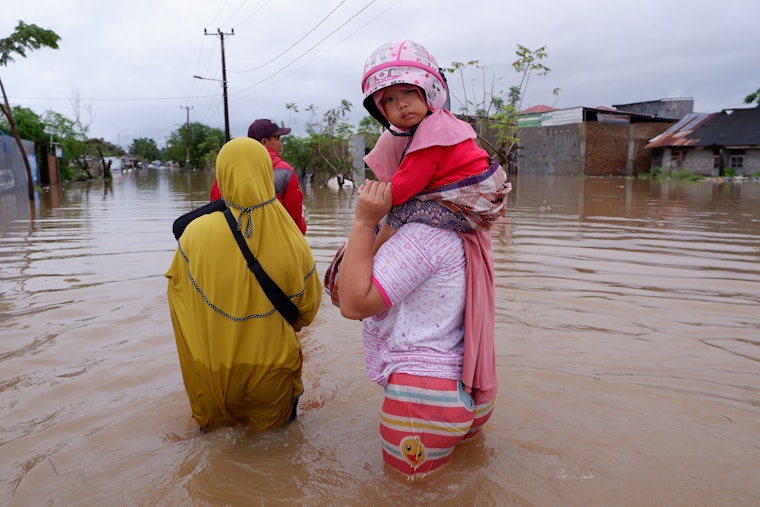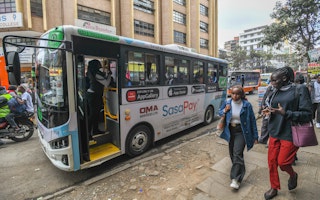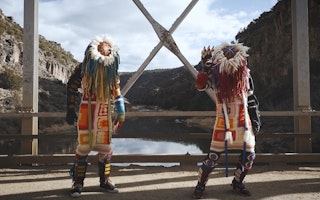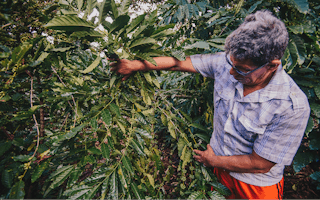The Challenge at COP28: Safeguarding Climate Justice
By Yamide Dagnet

Last year, flooding displaced 8 million people in Pakistan and submerged one-third of the country. This year, entire city blocks in the Libyan port of Derna were washed away into the sea. From Californian cities to Pacific atolls, intensifying weather extremes are threatening food security, prompting migratory movements, and risking conflict. And yet the Paris Agreement’s pledge to limit global warming to 1.5 degrees Celsius looks more elusive every day. COP28, convening this week in Dubai, offers a critical opportunity to safeguard hard-won progress and bring the world back from the brink. Securing a just outcome will require an extraordinary effort.
Trust levels are critically low. Developing countries on the front lines of climate change are losing patience with the continuing failure of wealthy nations to fulfill their commitments. In 2009, they agreed to allot $100 billion a year for climate finance. In 2021, they pledged to double their contributions toward adaptation. And this year, they were due to replenish the UN Green Climate Fund with at least $10 billion. Righting these will be key to unlocking many thorny issues under the negotiations.
The State of Climate Action 2023 report shows that, despite some encouraging developments in areas like electric vehicle sales, progress is occurring at nowhere near the pace and scale needed to fight climate change. While renewable energy investments have increased thanks to falling costs, fossil fuel investments have expanded, with subsidies almost doubling since 2020 to their highest level in a decade.
The choice of this year’s summit host—a major oil producer—has already attracted much skepticism. News outlets have reported some plan to use COP28 as an opportunity to arrange oil and gas deals. This underscores the need to hold the fossil fuel sector accountable, phase out fossil fuel in a managed and just way, and redouble efforts to boost investment in low-carbon technologies.
The stakes have soared ever higher as the climate crisis continues to inflict a ruinous financial toll and force many struggling economies further into debt. This is why the climate-vulnerable communities that have contributed least to emissions are urgently asking for help to repair historical damage, and to tackle any future loss. They expect nothing less than profound, structural reform of the international financial system (as highlighted by many Open Society Foundations partners, including the V20 and through the Bridgetown Initiative). Ongoing African-led efforts at the UN to secure inclusive international tax cooperation show that it can be done.
At last year’s COP27 in Sharm el-Sheikh, demands for action crystallized in the form of a Loss and Damage Fund, a goal representatives of climate-threatened developing countries and civil societies had pursued for decades. Getting wealthy countries and the top emitters to foot the bill of the vulnerable is a key component of global climate justice, though the details of how we get there remain contested.
Developing countries on the Loss and Damage Transitional Committee made a major concession in having the World Bank administer the fund; they favored the creation of a new and independent mechanism. However, there are concerns that the voluntary nature of the funding arrangements may risk reducing it to an empty shell. Key questions also remain about the scale, source, and rightful recipients of contributions. But while the Committee’s text is not perfect, it establishes a firmer negotiating platform than before and adds layers of accountability onto one of the world’s most powerful financial institutions.
Previous climate efforts have been highly technocratic affairs. COP28 should foster a people-centered approach to scaling and accelerating the green energy and agricultural transitions. We need to hear not only from governments, but also the private sector and workers’ movements. This requires input from the people who demand, consume, and supply the energy and agricultural products—and, most importantly, those disproportionately affected by the unsustainable fossil-fuel-based system they are forced to contend with. This is why tripling global renewables capacity by 2030 must be accompanied by safeguards to protect the rights of these frontline communities, and secure shared benefits through the value chain among countries.
The recent UN Emissions Gap Report highlighted the inadequacy of investment in adaptation which has been scaled back, instead of being doubled as agreed upon at COP26. More concessional finance is needed to attract the private sector. This is why Open Society is supporting endeavors like the African Adaptation Initiative’s projects on rural communities and the Rising Nation Initiative’s pioneering work on preserving the cultural heritage and statehood of such threatened nations as Tuvalu and the Marshall Islands.
There are justifiable grounds for cynicism. COP summits can seem like vastly expensive talking shops rigged to serve the interests of polluting countries. COP28 will be particularly challenging, not least considering the current tumultuous geopolitical context. But for many small, impoverished, and isolated countries and communities, it is a rare opportunity to build alliances, organize, strategize, and advocate on the world stage. Without their civil society campaigners, 1.5 degrees Celsius or Loss and Damage might well have never emerged as key milestones.
If COP28 is to be deemed a success, leaders must further heed their calls to loosen the global financial framework and come up with bold, equitable, and workable solutions. Countries facing down climate change must not merely be allowed to survive, but to prosper.

Until February 2024, Yamide Dagnet was the director of Climate Justice at the Open Society Foundations.


